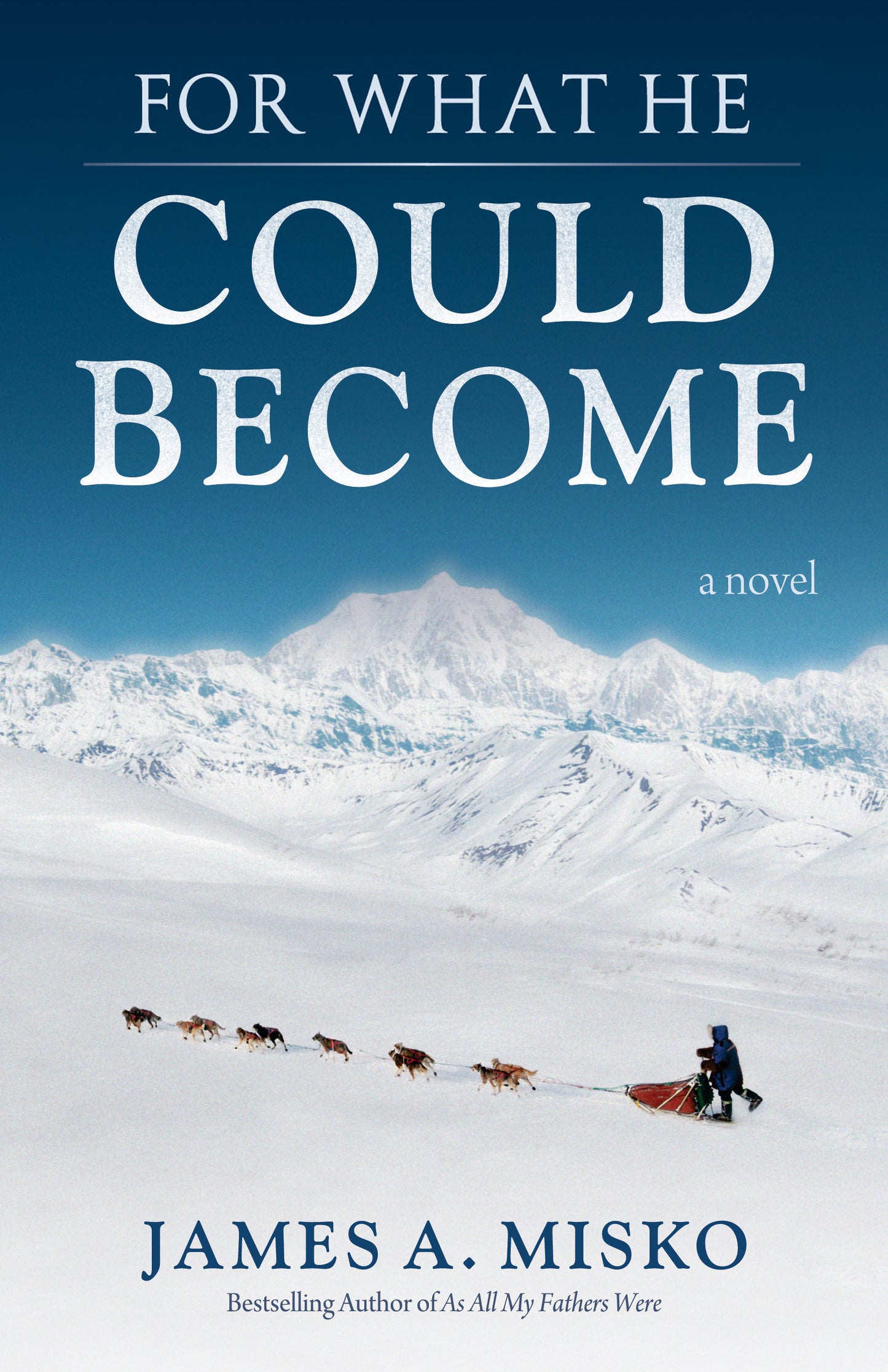When Bill Williams, a half Irish, half Athabaskan Indian, left his native Alaskan village after a disastrous bear hunt, he left behind not only the only home he had ever known, but also the girl he loved. It was then that the true adventure of his life began. He worked on a Yukon riverboat, searched for gold, and took a job building the Alaskan Highway. When the country became involved in World War II, Bill signed up to fight and was immediately sent overseas. The experiences of war were devastating and the trauma left him with deep indelible scars. After surviving the Battle of the Bulge, Bill returned home only to discover that his girlfriend was married to his brother and the village was no longer a welcome place for him.
At this point, Bill’s life takes a downward plunge into a world of alcoholism, unemployment, and homelessness. But an unlikely series of events suddenly sheds a beacon of light on the hopelessness of his life, and he is given a second chance at love and happiness—but only if he rises to the challenge.
James A. Misko (1932 - 2019) was born in Nebraska, then moved to Oregon and Alaska, completing what for him was a natural bridge to the frontier. He worked in his time as an oil field roughneck, a logger, truck driver, saw mill hand, teacher, journalist, real estate broker, and writer.
To read his obituary, feel free to click here.
"I was not expecting a full blown action and emotion packed, transporting reading experience. I could not put it down, and once the race started, did not. When I had finished . . . I reread it cover to cover. In forty years of fairly steady and broad based book devouring, I have seldom done that! You're in good company: Kipling, Faulkner, and Scott."
—Skip Lynar
"Great book!!!! Cathy got hold of it first and almost could not put it down until she finished it. She never reads a book. Then my turn. I didn't like it, I loved it. The story was so true to life and what I have seen so many times throughout Alaska. The race part was so perfect that I got cold, was elated, depressed, all the emotions one gets while actually running. It took me out on the trail again, especially the early years. Congratulations."
—Dick Mackey, winner of the 1978 Iditarod, and author of One Second to Glory
"The other book, For What He Could Become—also a first—was penned by a recent acquaintance of mine, Jim Misko. I purchased the book as a gesture of solidarity, but I had low expectations of it. Jim, after all, is a realtor, and everyone knows realtors can't write—they just fill in the blanks. Three days later, I finally put the book down. I had taken it with me everywhere: to bed, into the loo, to the bank so I could read while standing in line, to my last CLE where I concealed it behind the handout as I read (a trick I learned in ninth grade algebra).
In the course of those days, I burned a batch of cookies, spaced a dentist appointment, and almost fell down an escalator opening when I was walking with my nose between the pages. Good work, Jim! The tension in this book is impeccable. Never so lax I wanted to quit reading, never so intense that I skipped to the end to find out what happened. Both books are set in Alaska, but while Mike's story exploits the Alaskan mystique, Jim's adds to it. His prose is as spare and powerful as the tundra on a winter day. Somehow Jim has managed to write an entire book without adjectives, and write it convincingly.
As his protagonist Bill wanders away from Alaska, the characters seem to become more two-dimensional, less individualistic, as if that part of Bill's life is dreamlike, unreal, until he returns to the local color. I like to think that this is a style that portends something uniquely Alaskan (although Jim's second book, which I have not read, is set outside Alaska). I have my own idea of what happened to the protagonist, Bill, after the book ends; Jim, when I explained it to him, disagreed with me, but, after spending three-hundred and some pages with the man, I know Bill—better than I know Jim. And I like Bill the better for his flaws and his destiny, that the beauty of the human soul lies not in its backdrop, but in its moments of transcendence."
—Stephanie Patel, Esq.
"I read many books and it is not often that I say 'WOW,' but this book is one of them. For What He Could Become chronicles one mans life. Bill Williams. This book is really four intertwined stories, four phases of this mans life. In many ways it is like a play with four very distinct acts.
In Act 1 we are introduced to Bill, he is a 17 year old Athabaskan Indian living in a small Alaska community. He feels suppressed and depressed by his peers and the elders. His solution is to escape from the confines of the village and make his way in life. A 90 mile walk and river boat ride later he finds himself in Fort Yukon, where he becomes part of the workforce building the AlCan Highway.
In Act 2 we see Bill involved in World War II, although his active participation is short, it is clear that he has the ability to succeed and lead people. Some might call it heroism, some might call it self preservation, either way it is clear that Bill has the 'right stuff.' He uses his native knowledge to show others how to survive in a harsh environment.
In Act 3 Bill returns to his small community Arctic Village in triumph, only to discover that his brother has stolen his childhood sweetheart. In despair Bill heads back to the big city to seek anonymity amongst the masses. Two unfortunate and unrelated incidents occur and Bill finds himself penniless and homeless. He slips into the dark world of the drunk, begging money for the next bottle, and learning how to 'work the system.' This once proud young man slowly falls into the long middle age of the homeless pan handler. He has several skirmishes with the police, he also spends more than a few nights in hospital, apart from the whiskey bottle his only friend is the Salvation Army Major. The years of self abuse are becoming evident; with his health deteriorating there seems to be little hope for Bill.
To find out about Act 4, you will have to read the book! This is a superbly written piece of literature. Mr. Misko has done a great job both in research and execution. I work with the homeless population in Calgary, Alberta, I know many "Bill"s. It is sad, it is injustice, and it is life. This book could almost be used as a text book about the problems of alcohol and homelessness, and I plan on getting my co-workers to read this book. I cannot recommend this book strongly enough."
—Simon Barrett





